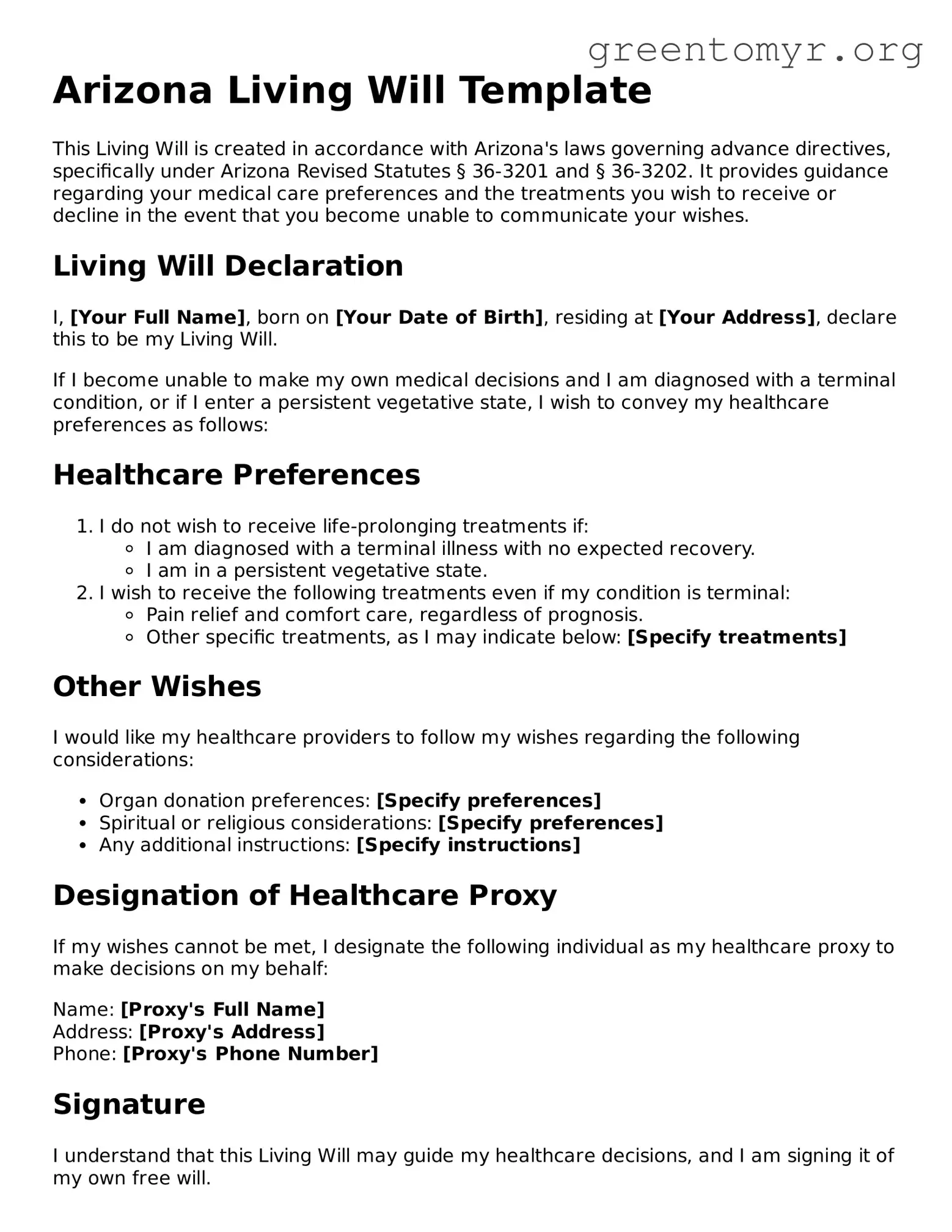Arizona Living Will Template
This Living Will is created in accordance with Arizona's laws governing advance directives, specifically under Arizona Revised Statutes § 36-3201 and § 36-3202. It provides guidance regarding your medical care preferences and the treatments you wish to receive or decline in the event that you become unable to communicate your wishes.
Living Will Declaration
I, [Your Full Name], born on [Your Date of Birth], residing at [Your Address], declare this to be my Living Will.
If I become unable to make my own medical decisions and I am diagnosed with a terminal condition, or if I enter a persistent vegetative state, I wish to convey my healthcare preferences as follows:
Healthcare Preferences
- I do not wish to receive life-prolonging treatments if:
- I am diagnosed with a terminal illness with no expected recovery.
- I am in a persistent vegetative state.
- I wish to receive the following treatments even if my condition is terminal:
- Pain relief and comfort care, regardless of prognosis.
- Other specific treatments, as I may indicate below: [Specify treatments]
Other Wishes
I would like my healthcare providers to follow my wishes regarding the following considerations:
- Organ donation preferences: [Specify preferences]
- Spiritual or religious considerations: [Specify preferences]
- Any additional instructions: [Specify instructions]
Designation of Healthcare Proxy
If my wishes cannot be met, I designate the following individual as my healthcare proxy to make decisions on my behalf:
Name: [Proxy's Full Name]
Address: [Proxy's Address]
Phone: [Proxy's Phone Number]
Signature
I understand that this Living Will may guide my healthcare decisions, and I am signing it of my own free will.
Signature: ______________________
Date: ______________________
Witnesses:
- Name: [Witness 1 Full Name], Signature: ______________
- Name: [Witness 2 Full Name], Signature: ______________
This document will serve as a guide for medical providers and family members regarding my healthcare preferences. It should be shared with my healthcare proxy, family members, and kept in a location accessible when needed.
